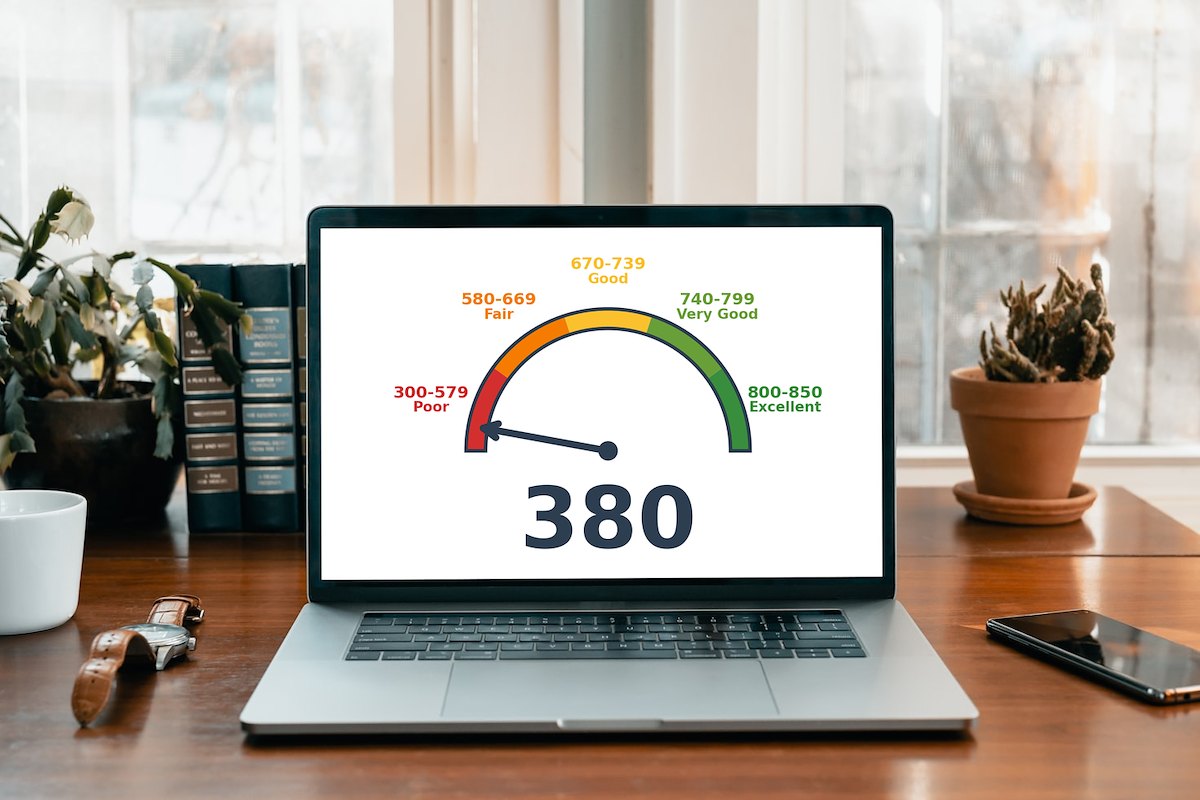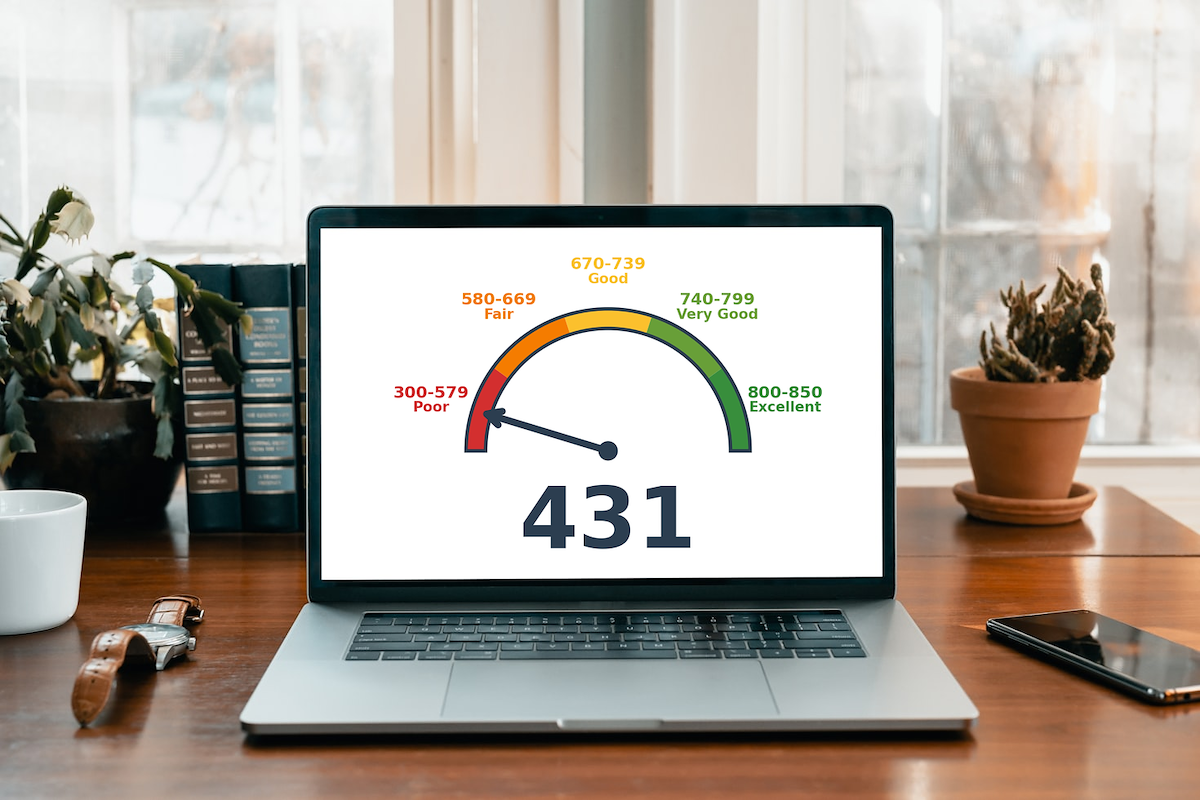
Kudos has partnered with CardRatings and Red Ventures for our coverage of credit card products. Kudos, CardRatings, and Red Ventures may receive a commission from card issuers. Kudos may receive commission from card issuers. Some of the card offers that appear on Kudos are from advertisers and may impact how and where card products appear on the site. Kudos tries to include as many card companies and offers as we are aware of, including offers from issuers that don't pay us, but we may not cover all card companies or all available card offers. You don't have to use our links, but we're grateful when you do!
380 Credit score: What You Need to Know in 2025
July 1, 2025


TL;DR
While a 380 credit score presents significant financial hurdles, it offers a clear opportunity to rebuild and establish a stronger credit history. This score falls squarely into the "Poor" FICO score category, providing a definitive starting point for improvement.
What Does a 380 Credit Score Mean?
A credit score of 380 places you squarely in the "Poor" category on the FICO scale, which ranges from 300 to 850. This score is at the lowest end of the spectrum, signaling to potential lenders that you represent a very high credit risk. It typically reflects a history of significant financial difficulties, such as numerous late payments, loan defaults, or other major negative marks on your credit report.
Financially, a 380 score creates substantial roadblocks. You'll find it extremely difficult to be approved for new credit, including credit cards, auto loans, or mortgages. If you are approved, it will likely be for a low credit limit with exceptionally high interest rates and strict terms. While this presents a challenging financial situation, understanding where you stand is the first step toward navigating a path forward.
Who Has a 380 Credit Score?
While a 380 credit score is significantly below the national average, it's helpful to see how scores typically break down across different age groups. According to 2023 Experian data, average credit scores tend to increase steadily with age:
- Generation Z (ages 18-26): 680
- Millennials (ages 27-42): 690
- Generation X (ages 43-58): 709
- Baby Boomers (ages 59-77): 745
- Silent Generation (ages 78+): 760
Credit Cards With a 380 Credit Score
A credit score of 380 is significantly below the national average and falls squarely in the "poor" credit range. Lenders view this score as a major red flag, indicating a high risk of default, which makes qualifying for most traditional credit cards extremely challenging. Consequently, you'll likely face immediate rejections or, at best, be limited to options like secured credit cards that require a cash deposit as collateral.
Kudos offers AI-powered tools that analyze your unique financial situation and preferences to help you find the best credit card match from a database of nearly 3,000 options. The platform provides crucial credit score insights, empowering you to make a responsible choice that aligns with your goal of improving your credit.
Auto Loans and a 380 Credit Score
A 380 credit score places you in the deep subprime category, which can make securing an auto loan challenging. While approval is still possible, you will likely face significantly higher interest rates and less favorable loan terms.
- Super-prime (781-850): 5.25% for new cars and 7.13% for used cars, according to Q2 2025 data
- Prime (661-780): 6.87% for new cars and 9.36% for used cars
- Non-prime (601-660): 9.83% for new cars and 13.92% for used cars
- Subprime (501-600): 13.18% for new cars and 18.86% for used cars
- Deep subprime (300-500): 15.77% for new cars and 21.55% for used cars
Mortgages at a 380 Credit Score
A 380 credit score is well below the minimum for all mainstream home loans. Government-backed FHA loans require a score of at least 500, while conventional mortgages typically demand a 620 or higher. With a score of 380, you will not qualify for these standard options, as lenders view it as too high of a risk.
The most likely impact of a 380 credit score is loan denial. While rare subprime lenders might consider such a score, their terms would be severe. You would face exceptionally high interest rates, substantial fees, and a very large down payment requirement, making any potential loan extremely expensive and difficult to manage.
What's in a Credit Score?
Figuring out what goes into your credit score can feel like trying to solve a complex puzzle, but it generally boils down to a handful of key elements. The most common factors include:
- Your history of making payments on time is the most significant factor.
- How much of your available credit you're currently using, known as your credit utilization ratio, plays a major role.
- The age of your credit accounts, including the average age and the age of your oldest account, is also considered.
- Lenders like to see that you can responsibly manage different types of credit, such as credit cards and loans.
- Opening several new credit accounts in a short period can be seen as a risk and may temporarily lower your score.
How to Improve Your 380 Credit Score
While a 380 credit score can feel limiting, it's important to know that you can rebuild your credit with a focused strategy. By implementing a few proven methods, most people can see significant improvements in as little as three to six months.
- Establish Automatic Bill Payments. Payment history is the largest factor in your credit score, so ensuring every bill is paid on time is the most critical first step. Setting up automatic payments prevents missed due dates that severely damage a low score.
- Apply for a Secured Credit Card. A secured card is an excellent tool for credit-building, as it requires a cash deposit that makes it easier to get approved. Responsible use and consistent payments are reported to the credit bureaus, establishing a positive history.
- Become an Authorized User. Ask a trusted family member or friend with a strong credit history to add you as an authorized user on one of their cards. Their good payment history and low credit utilization can be added to your credit file, giving your score a boost.
- Monitor Your Credit Reports. Regularly check your credit reports from all three bureaus—Experian, TransUnion, and Equifax—for errors or fraudulent activity. Disputing and removing inaccuracies can provide a quick and significant lift to your score.
Kudos can help you manage your cards and monitor your score to make smarter financial decisions on your credit improvement journey.

Supercharge Your Credit Cards
Experience smarter spending with Kudos and unlock more from your credit cards. Earn $20.00 when you sign up for Kudos with "GET20" and make an eligible Kudos Boost purchase.
Editorial Disclosure: Opinions expressed here are those of Kudos alone, not those of any bank, credit card issuer, hotel, airline, or other entity. This content has not been reviewed, approved or otherwise endorsed by any of the entities included within the post.























.webp)
















